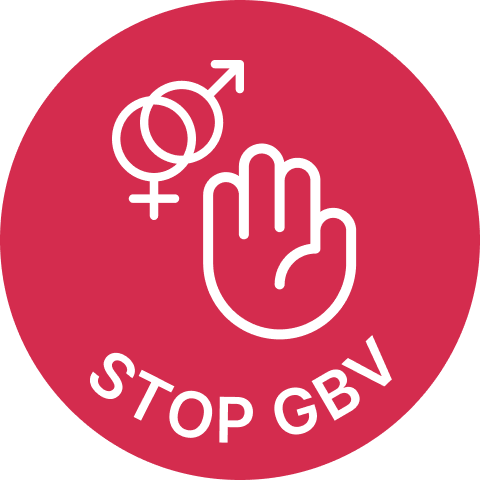
Ghana
General election, 7 December 2024
Ghana conducted presidential and parliamentary elections (for all 276 seats) on 7 December 2024. (International IDEA 2024). Both the president and parliament are elected every four years via a two-round system: if no candidate receives 50 per cent plus one vote, then a second round is held. There is a two-term limit on the presidency (Electoral Commission n.d.). The Electoral Commission of Ghana manages the elections and has a reputation for ‘professionalism, independence, and integrity [through] transparency and consistent communications with all parties’ (Africa Center for Strategic Studies 2024). Under Ghanaian law the Commission is appointed on the advice of the Council of the State (Electoral Commission n.d.), a partially elected body of prominent citizens.
In September 2024, mass protests broke out over electoral transparency and discrepancies in voter registration in different parts of the country (Sapp 2024). The main opposition candidate, John Mahama of the National Democratic Congress (NDC) party alleged unauthorized transfers of registrations, voters unable to locate their registration, and the continued registration of 50,000 deceased voters. The NDC further called for an external audit of all voter registration before the election. The incumbent National Patriotic Party (NPP) and the Electoral Commission rejected the claims as “baseless” (Mensah 2024).
Despite the commitment from both leading candidates to a peaceful and democratic process—by signing a “peace pact” on 29 November—pockets of pre- and post-election violence still occurred (Naadi and Rukanga 2024). Around 100 people were arrested during clashes between supporters of the two parties. There were also reports of six deaths in connection with electoral violence (Teye Agbove 2025 ; CODEO/CDD/WANEP 2024). EU-supported domestic observer committed to seeking justice for victims and collated a report of 76 incidents, including attacks on election materials and in at least two cases, arson against polling station (CODEO/CDD/WANEP 2024).
Commonwealth election observers commended parties for signing the peace page, polling officials for their professionalism, and a range of organisations that collaborated on civic education, media training and gender mainstreaming efforts (Commonwealth 2024). The African Union EOM stated that the elections “adhered to regional and international standards, reinforcing Ghana’s democratic credentials”; the Economic Community of West African States EOM stated the polls were largely peaceful and complied with national and regional frameworks “to a significant extent” (Xinhua/GNA 2024).
Voter turnout decreased from 79 per cent in 2020 to 64 per cent in 2024. Former president (2012–2016) John Dramani Mahama of the NDC received 56.4 per cent of the vote to secure a first-round victory against serving Vice President Mahamudu Bawumia on 41.8 per cent (International IDEA 2024). Bawumia swiftly conceded defeat in order to ease tensions (DW 2024). Ghana elected its first female vice president, Naana Jane Opoku Agyemang.
In the parliamentary elections, 801 candidates competed for 276 seats, with women making up only 15 per cent of the contenders. After the election, women accounted for just 15 per cent of MPs, falling below the West African average of 18 per cent. The region shows stark contrasts, with countries like Senegal achieving 46 per cent female representation through quotas, while Nigeria lags at just 4 per cent. Ghana’s first-past-the-post (FPTP) system, which favors financial influence and entrenched networks, continues to pose barriers for women entering politics (The Conversation 2024).
Gender-based violence in Ghanaian politics remains pervasive. A 2024 survey found that 95 per cent of candidates faced degrading remarks, false rumors, and other forms of political violence (Bauer & Darkwah 2024). Women and LGBTQIA+ individuals are particularly vulnerable, experiencing verbal (72 per cent), emotional/psychological (41 per cent), sexual (29 per cent), and physical (14 per cent) violence (Bob-Milliar & Madsen 2024). Reports from the recent election also highlighted incidents of women voters being harassed and intimidated at polling stations, including UDS Nyankpala in the Tolon constituency (Donkor 2024).
Africa Center for Strategic Studies, 2024 Elections – ‘Ghana: December 7’, January 17 2024, https://africacenter.org/spotlight/2024-elections/ghana/, accessed 4 March 2025
Bauer, G., & Darkwah, A. K., 'The Cost of Doing Politics in Ghana: What does violence against politicians look like?' Bergen: Chr. Michelsen Institute (CMI Brief 2024:01). https://www.cmi.no/publications/9161-the-cost-of-doing-politics-in-ghana-what-does-violence-against-politicians-look-like accessed 4 March 2025
Bob-Milliar, G. M., & Madsen, D. H., 'Ghana's democracy stress tested – three milestones passed'. The Nordic Africa Institute. 7 December 2024. https://nai.uu.se/stories-and-events/news/2025-02-06-ghanas-democracy-stress-tested---three-milestones-passed.html accessed 4 March 2025
Coalition of Domestic Election Observers (CODEO), Ghana Center for Democratic Development (CDD-Ghana), and West Africa Network for Peacebuilding (WANEP), ‘Electoral Violence Cases Recorded on the 2024 Elections’, 18 December 2024, codeoghana.org/wp-content/uploads/2024/12/Joint-Press-Release-_-CDD.-CODEO.-WANEP.-2024-Election-Violence-wb.pdf, accessed 4 March 2025
Commonwealth, The, ‘Interim Statement by His Excellency Dr. Mokgweetsi Eric Masisi, Former President of the Republic of Botswana, Chairperson of the Commonwealth Observer Group (COG), Ghana, 9th December 2024’, 2024, production-new-commonwealth-files.s3.eu-west-2.amazonaws.com/s3fs-public/2024-12/interim-statement-ghana-elections.pdf?VersionId=1nI73_a5Igr_jzYDYiL1XNZwcQ8nGNS, accessed 4 March 2025
DW, ‘Ghana: Ruling party candidate Bawumia concedes election loss’, 12 August 2024, https://www.dw.com/en/ghana-ruling-party-candidate-bawumia-concedes-election-loss/a-70994801, accessed 4 March 2025
Donkor, I. '#Election2024: Women were targeted, some fled polling stations due to violence — GenCED', Modern Ghana, 7 December 2024, https://www.modernghana.com/news/1363743/election2024-women-were-targeted-some-fled-poll.html, accessed 4 March 2025
Electoral Commission of Ghana, ‘Electoral system of Ghana’, [n.d.], https://ec.gov.gh/electoral-system/, accessed 4 March 2025
International IDEA, Democracy Tracker, ‘Ghana – December 2024’,https://www.idea.int/democracytracker/country/ghana, accessed 4 March 2025
Mensah, K., ‘Ghana: Controversy over voter register as opposition NDC raises red flags’, Africa Report, 2 September 2024, https://www.theafricareport.com/360419/ghana-controversy-over-voter-register-as-opposition-ndc-raises-red-flags/, accessed 4 March 2025
Naadi, T. and Rukanga, B., ‘Dozens of Ghana president-elect's supporters arrested in post-poll chaos’, BBC News, 11 December 2024, https://www.bbc.com/news/articles/cy8972n10jgo, accessed 4 March 2025
Sapp, M., ‘The battle for free and fair elections in Ghana: Electoral irregularities and growing unrest’, Democratic Erosion, 4 November 2024 https://democratic-erosion.org/2024/11/04/the-battle-for-free-and-fair-elections-in-ghana-electoral-irregularities-and-growing-unrest/, accessed 4 March 2025
Teye Agbove, P., ‘Blood on the ballot: Election violence in Ghana’, Institute for War & Peace Reporting, 23 January 2025, https://iwpr.net/global-voices/blood-ballot-election-violence-ghana, accessed 4 March 2025
The Conversation, 'Ghana’s election system keeps women out of parliament. How to change that', 11 December 2024, https://theconversation.com/ghanas-election-system-keeps-women-out-of-parliament-how-to-change-that-245187, accessed 18 March 2025
Xinhua/Ghana News Agency, ‘International observers commend Ghana for peaceful polls’, 11 December 2024, https://gna.org.gh/2024/12/international-observers-commend-ghana-for-peaceful-polls/, accessed 6 March 2025
 Instances of gender-based violence
Instances of gender-based violence